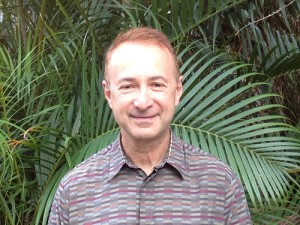If you are sick and tired of feeling sick and tired, you are not alone.
According to the Royal College of Psychiatrists, one in three people go to their GP with medically unexplained symptoms*.
Typically, these symptoms involve fatigue and feelings of unwellness, or other symptoms such as low grade inflammation, night sweats, or poor sleep. Some people may be made to feel that if they do not have a diagnosable disease, then the problem is in their heads.
In my experience, just because the symptom cluster does not meet the diagnosis of a disease, doesn’t mean the symptoms are made up. We are only just beginning to understand the biological mechanisms that explain how the things that people experience psychologically and socially, affects their bodies and health.
Our Mind Affects Our Body
We now know that aversive early childhood experiences, such as abuse, neglect, trauma, high levels of parental conflict or violence, parental misuse of alcohol or other substances, or parents too preoccupied with their own problems, may dysregulate the individual’s system, leaving them with all kinds of physical health problems, which may only emerge much later, well after the difficult childhood events.
In addition, current stress and anxiety can alter our hormone balance, and produce all kinds of physical symptoms.
If an individual feels unwell or tired most of the time, they can completely lose their quality of life, and life can become so difficult that depression and anxiety can also set in, adding to the difficulties.
Going round in Circles
Often these individuals have tried going to various doctors and other complementary medicine approaches, in their efforts to find a diagnosis or improvements. While these goals are certainly important – it’s still not getting well!
What people often do not realise, is that the mind is very connected to the body. Suffering can get passed on in the form of physical difficulties, and sometimes the missing link in our wellness programme is to look at our psychological state.
Clues
Clues that early aversive childhood experiences may be playing a part in current health difficulties are:
- feeling numb, or spaced and dissociated from feeling;
- feelings that seem to be all over the place;
- difficulty allowing others to get close;
- compulsive or addictive behaviours that can’t be controlled;
- feeling broken;
- low self-esteem (or feelings of being unworthy, unloveable, undeserving, or unattractive); and
- depression.
A Holistic Approach
I underwent training in the Department of Psychological medicine, the home of psychiatry, so I have a high level of medical knowledge as well as psychology in my background, and have trained as a Health Psychologist. I work holistically, recognising the importance of a good GP and blood tests, as well as complementary approaches. I specialise in helping people to heal damage from the past, so that they can accept and love themselves, have a healthy sense of self and find safety in enriching intimacy. When this is done, many find their physical symptoms improve or resolve.
 Author: Paul Carver, Bsc, Msc, PG Dip Health Psych.
Author: Paul Carver, Bsc, Msc, PG Dip Health Psych.
Paul Carver is a Psychologist with a very wide range of experience, and is focused on bringing the very best evidence-based treatments to his clients.
To make an appointment try Online Booking. Alternatively, you can call Vision Psychology Brisbane on (07) 3088 5422.
Reference
* http://www.rcpsych.ac.uk/healthadvice/problemsdisorders/medicallyunexplainedsymptoms.aspx